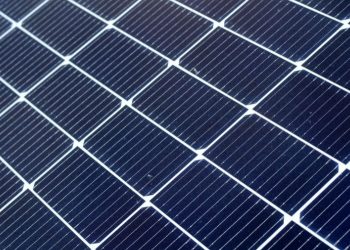It’s been one month since Auxin Solar sued the U.S. federal government for not collecting anti-dumping/countervailing duties (AD/CVD) on Southeast Asian solar imports, a story that first broke here on Solar Power World.
President Joe Biden issued an emergency proclamation in June 2022 that paused any retroactive or new duties on solar cells and panels from Cambodia, Malaysia, Thailand and Vietnam that use Chinese components to ensure the United States had adequate supply of solar panels during the Dept. of Commerce’s AD/CVD investigation into alleged circumvention. When Commerce made an affirmative decision that the Southeast Asian imports were indeed circumventing existing Chinese tariffs, the department said duty collection would begin after Biden’s emergency pause was lifted in June 2024.
Auxin sued Commerce and Customs and Border Protection (CBP) last month for not collecting AD/CVD on Southeast Asian imports, claiming that Commerce was not required to follow Biden’s two-year pause. Auxin is asking the U.S. Court of International Trade (CIT) to put an end to the two-year pause, opening up the opportunity for retroactive duties.
A few things have happened since the Dec. 29, 2023 lawsuit. Auxin filed for a preliminary injunction on Jan. 9, looking for Biden’s pause to be suspended while the case is investigated. The preliminary injunction was essentially withdrew on Jan. 25 when Auxin (working with defendants Commerce and CBP) filed for a “joint stipulation in lieu of preliminary injunction.” The joint-stipulation states the possibility for reliquidation of previously unliquidated module imports under the two-year pause. It’s not a requirement, but it opens the door to retroactively apply duties to solar panels imported in the last two years. A decision on the joint-stipulation could take months, and CIT has not released a schedule.
The government filed a motion to dismiss with Judge Timothy Reif of the CIT on Jan. 22 for “lack of subject matter jurisdiction.” Commerce said that Auxin had its chance to challenge President Biden’s two-year pause during the circumvention inquiry (and Auxin and others made “many such arguments,” Commerce said), and Commerce addressed those concerns in its final determination. Because Commerce had also announced, prior to its final determination, that it would apply the two-year pause, Auxin could not now ask the CIT to have Commerce reverse its final determination.
Eight parties have filed motions to intervene in support of Commerce and CBP — advocacy groups American Clean Power Association (ACP) and the Solar Energy Industries Association (SEIA); utility-scale developers NextEra and Invenergy; and international solar panel manufacturers BYD, Canadian Solar, JA Solar and Trina Solar. All eight parties expressed their support of the defendant side in Jan. 26 and Jan. 29 filings to Judge Reif, repeating the government’s argument in its motion to dismiss.
“[Auxin] waived any arguments that the remedies available … are manifestly inadequate by failing to raise this issue in their complaint,” many of the documents stated, insinuating that Auxin already exhausted its efforts to put an end to the two-year pause and this new lawsuit had no merit.
Solar Power World has reached out to the involved parties for comment and will update this news once more details are available.
Solar Power World will continue to follow this solar tariff development. Read more on our tariff coverage here and find the latest on domestic manufacturing here.



















